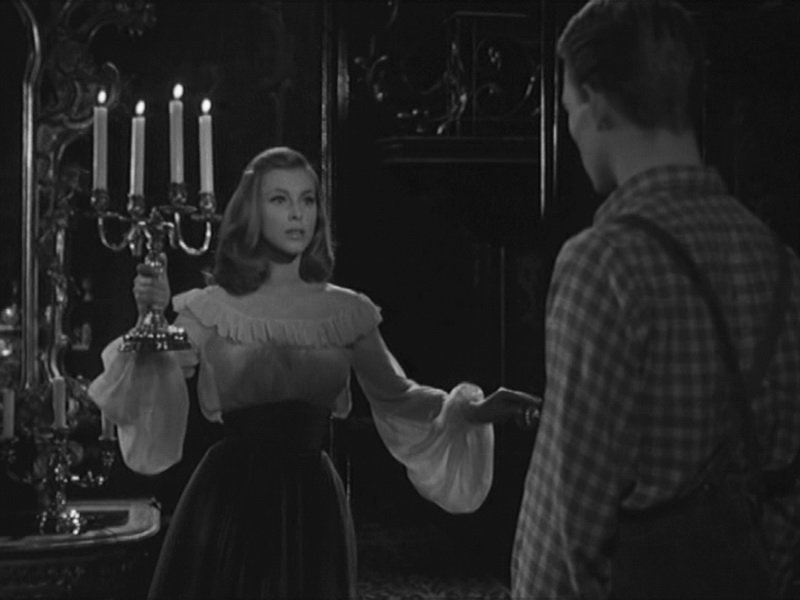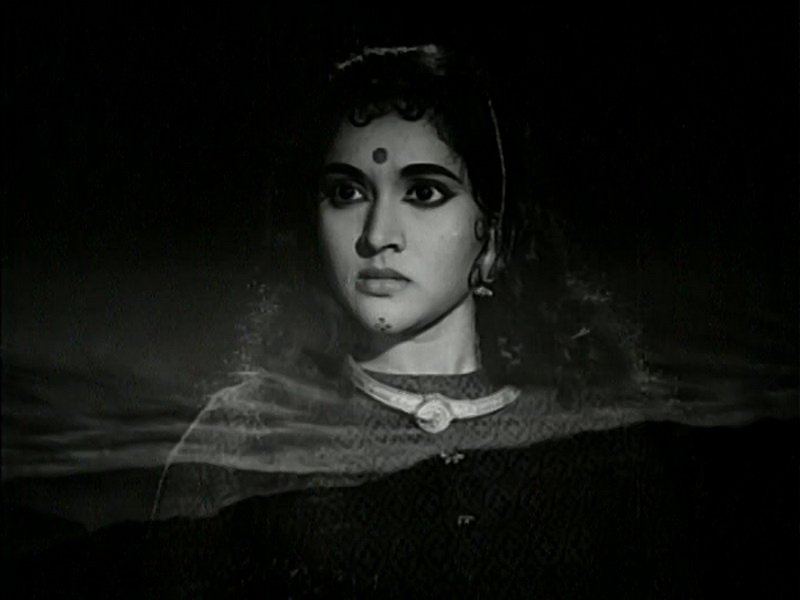BOMBAY MIX: Indian cinema meets the rest of the world in a mix of movies that share themes, stories and genres. Part of an on-going programme of double bills that invite audiences to explore cinema and make new connections.
SUPAKINO presents “Painful Arcadia”: a double bill of MARIANNE DE MA JEUNESSE (1955) & MADHUMATI (1958), two supernatural love stories from French and Indian cinema set amongst misty forests and mysterious mansions. Both films will be introduced by Ranjit S. Ruprai and include post-screening discussions with special guest film critic Phuong Le.
Intro + Marianne de ma jeunesse 17:00 Tickets / Intro + Madhumati 19:30 Tickets
MARIANNE DE MA JEUNESSE (1955) Dir. Julien Duvivier
On 25 March 1954, Peter de Mendelssohn received an unexpected telephone call from Paris to his home in Wimbledon. Mendelssohn had been living in Britain since 1936 after leaving Germany a few years earlier, but he had moved on from writing novels and become a publicist and journalist. He was surprised to hear that Julien Duvivier wanted the film rights to his 1932 book Painful Arcadia:
“This doesn’t have the makings of a film, I said. No-one could make a film with that. Not even Julien Duvivier. It’s a daydream, with no real plot. The events are barely suggested... You don’t make a film with children’s dreams.”
Yet Duvivier, aided by his assistant director Marcel Ophüls, conjure up a cinematic reverie. The resulting Marianne de ma jeunesse is a wonderful dream set in Bavarian forests and castles about a supernatural love seemingly doomed but ultimately hopeful.
MADHUMATI (1958) Dir. Bimal Roy
Madhumati was released in India on 12 September 1958 and became the highest-grossing Indian film of the year and one of the most influential Indian films of all time. Yet, in Bimal Roy’s award-winning career as a social realist filmmaker, Madhumati is often considered uncharacteristically commercial with its reincarnation love story set in an eerie mansion and misty hillside forests. Within this supernatural setting, however, are brutal feudal inequities and the exploitation of natural resources and indigenous people.
Bimal Roy Productions was born in a double-decker bus, when Roy and his colleagues were returning home inspired by a screening of Rashomon at the Eros Cinema in Mumbai. It was the spirit of camaraderie between the key members of Bimal Roy Productions that created an ideal environment for creative collaboration. The extra layers within this iconic film are no doubt due to Roy’s collaboration with these greats of Indian cinema: music by Salil Chowdhury; lyrics by Shailendra; editing by Hrishikesh Mukherjee; story by Ritwik Ghatak; and dialogues by Rajinder Singh Bedi.


